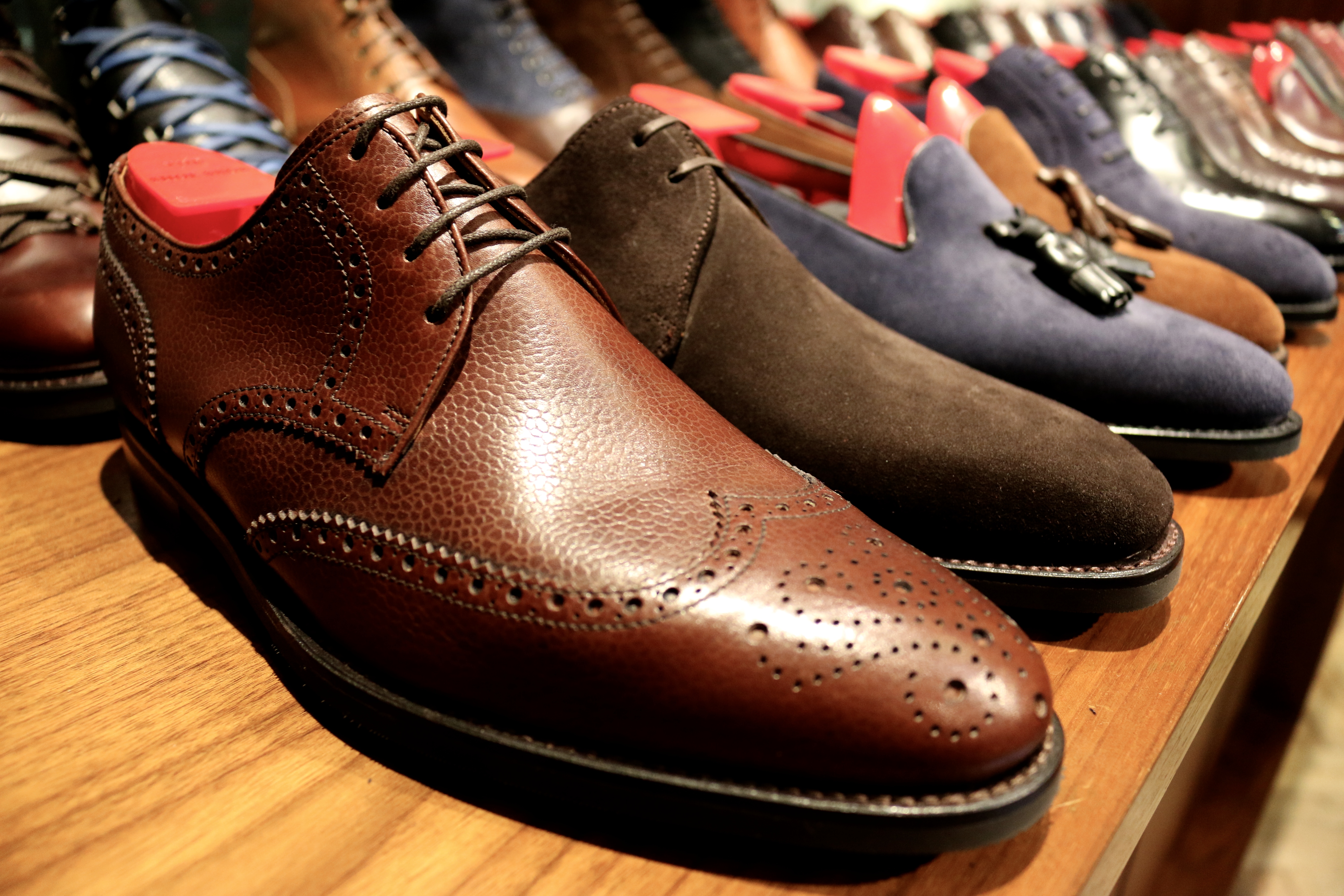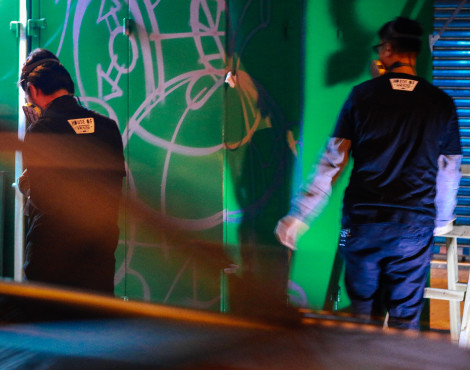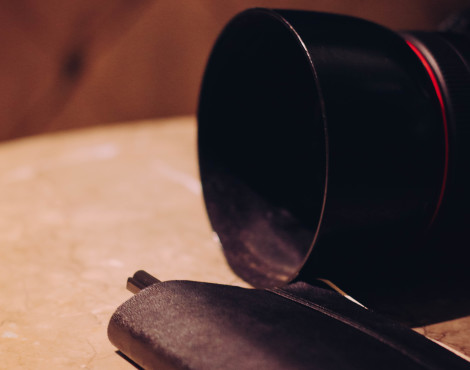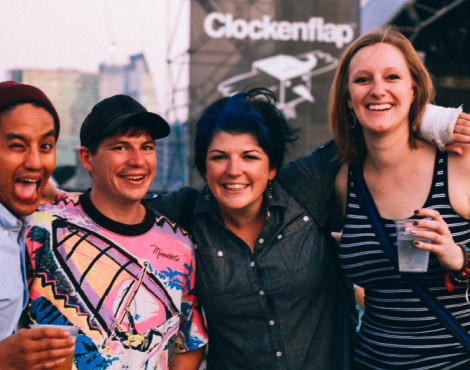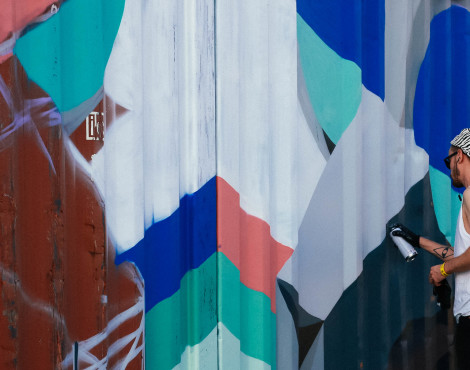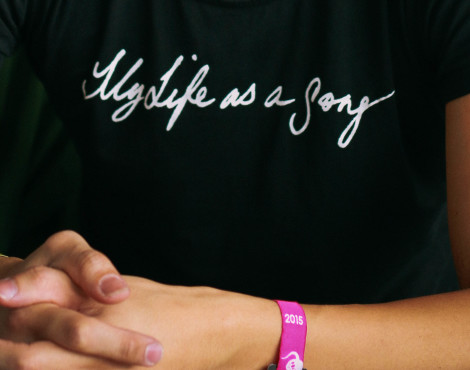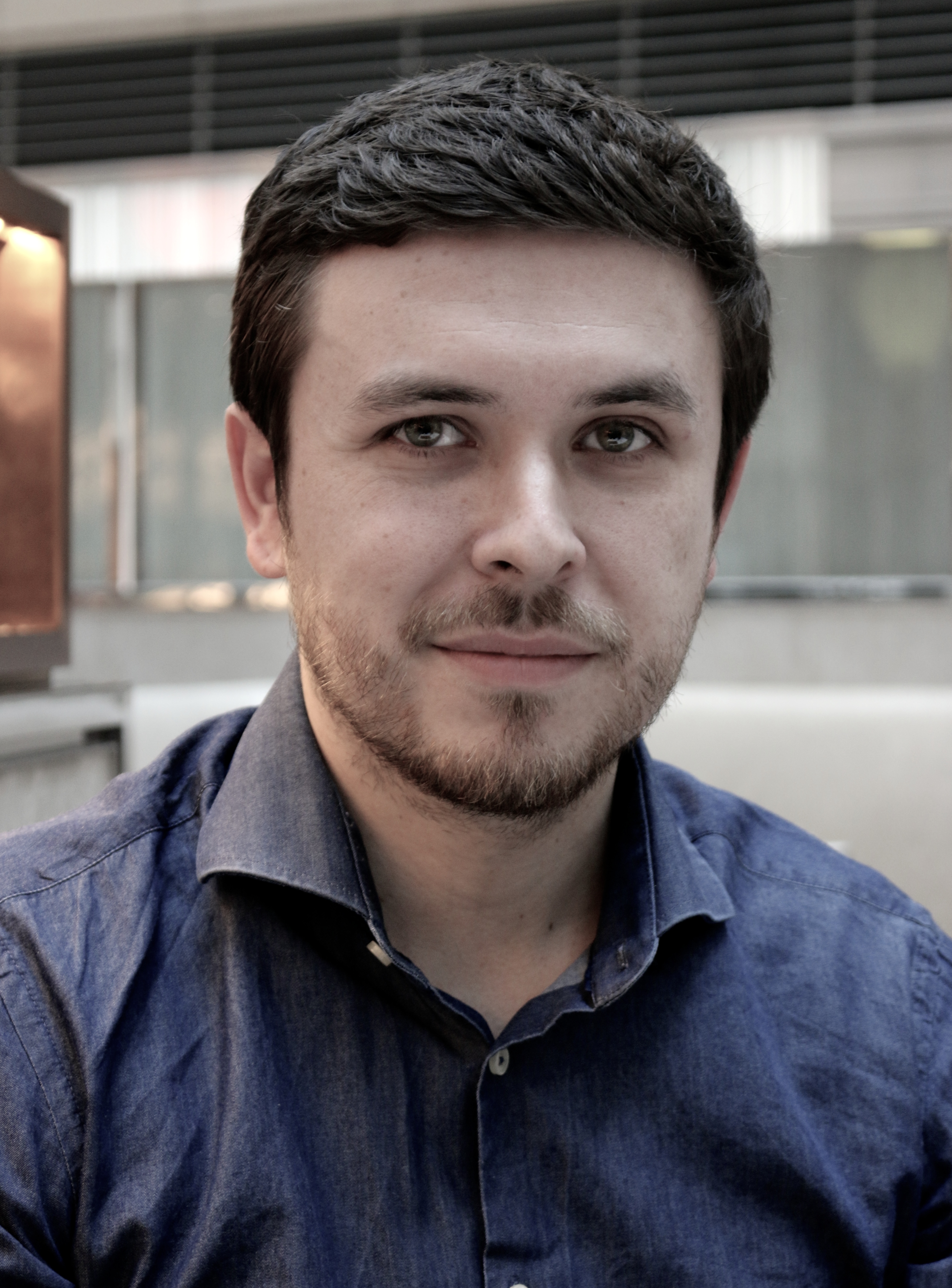
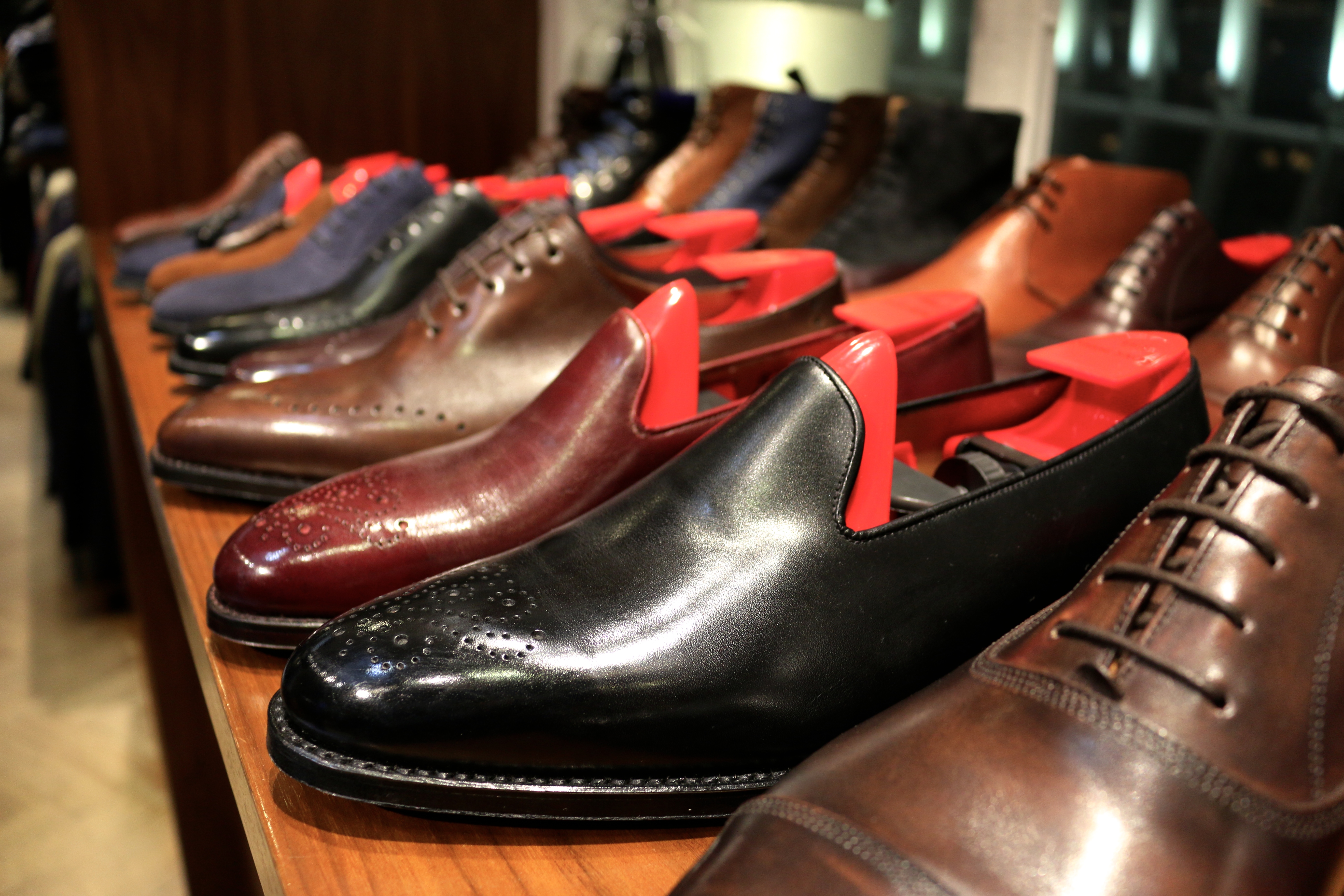
Chris Tuazon: So, I have to ask. After seven years of all the work put into getting to this point, what is the feeling to see your name on the inside of a shoe?
Justin FitzPatrick: I still don’t . . . I don’t know. I always envisioned that day, but I don’t know if it’s still sunk in. For me, I don’t think, “Wow, I made it happen.” I just live day-to-day life and it’s more “Now I have a brand. What can I do grow it?”
CT: Between reading your posts and talking to you now, I don’t really get the impression of a shoe snob. Yes, blunt about footwear brands for better or for worse, but you’re just honest. So then how did you come up with that name?
 JF: Actually my father created it. I remember when I wanted to start the blog and called him – you know, my dad is one of my role models when it comes to business in some regards – and I said, “Dad, I really want to start a blog. I’m thinking ‘The Shoe Aficionado,” and he was said, “Who’s going to read ‘The Shoe Aficionado?’ You need to be The Shoe Snob.”
JF: Actually my father created it. I remember when I wanted to start the blog and called him – you know, my dad is one of my role models when it comes to business in some regards – and I said, “Dad, I really want to start a blog. I’m thinking ‘The Shoe Aficionado,” and he was said, “Who’s going to read ‘The Shoe Aficionado?’ You need to be The Shoe Snob.”
So in the beginning, I was much more snobbish. I did a lot of posts that were not nice, and every now and then I still do. I have rants where I see something that bothers me and I have to write about it. I’ve now turned the blog into something more educational. But also, at heart, I am a shoe snob. I look at people’s shoes and I judge them. We all do. People can lie about it, but we all judge. You know, I hate when I see crappy shoes.
CT: I just got off the subway and saw this guy pass by, tight Ed Hardy jeans and cowboy boots with the ends that curl up like an elf’s. Now I’m a nice guy, a little meek even. But I saw him and a red alarm went off in my head.
JF: And don’t get me wrong, I don’t expect the whole world to be wearing nice shoes. Some people just don’t give a shit. But I hate the guys who think they’re really cool, and dress really bad. Those guys bother me. But other than that, The Shoe Snob came out of a need to invoke a reaction.
CT: And some of your shoes definitely accomplish this. Take for example, the Stefano. Can you tell me about that?

Being around Stefano [Bemer] was vital, because his shoes and designs really set the tone for me as an appreciator of classic shoes with a twist. Stefano had a lot of two-tones, and I was greatly enamored by them. So I took one of his shoes, altered the design a bit, and named it after him.
CT: I see. What about the other names?

JF: Three of them are of people’s names that have helped me or inspired me. The rest are of neighborhoods and streets in Seattle. I’ll never forget where I came from.
CT: Do you follow the Sounders back in Seattle?
JF: No, I don’t have the time to follow, but I’ve played it most of my life. When I realized I was never going pro, I put my energies elsewhere. I probably had the raw talent, but I didn’t practice every day. I was first team, all metro. I was a captain. But I didn’t do what it took.
CT: Did this guide you into the focus your determination to learn everything about shoes to build brand?
JF: Definitely. I used to tell myself, “I’m gonna be a footballer.” And my dad would say, “Justin, you’re never gonna be a footballer unless you go out there every single day, run three, four miles, take five hundred shots on goal. If you don’t do it, forget about it.
“But if you do it, you have a chance.” I was just like, “Yeah, whatever dad.”
So, to teach me a lesson, I was somehow invited to play in a tournament in Holland when I was sixteen. My dad paid for it as a test. He wanted to me to see how Europeans played, and how good they were. I came back from the trip — we got our asses handed to us in the tournament — he sat me down and said, “You still want to be a footballer?” And I already knew where he was getting at.
“Yeah, you’re right dad. I didn’t do what it took.”
So I learned a lesson. If you don’t do what it takes, you’re never going to get to where you want to go. It helped be realize a) my dad knew what he was talking about, b) it’s true what he said, and c) if I wanted to be serious about something, then I’d have to go all in.
CT: And so began your journey. I think that in anything where you’re new, there’s nothing more valuable than a mentor. Can you tell me a little bit about your mentors?

JF: My biggest mentor was Tony Gaziano, who has taught me vast amounts and helped me with my own brand. Tony made a last for me personally, and then I used that to create my own brand.
CT: What advice from Mr. Gaziano stuck with you?
JF: He said, “Justin, you got to remember: as much as you want to design shoes for yourself, you can’t do that. You have to design them for the clients, and what they want.” And he was right.
CT: How so?
JF: I try to do a mixture of both. Things that I don’t think anybody else is going to do, which is more my personality. And then things that I think clients are going to want to buy. Often enough, clients are buying the shoes that I designed for them. The real shoe guys, who have all their bases covered, are buying the things that I made for myself.
CT: Have you had yourself a chance to give any advice or mentoring to anyone who wants to do similarly what you have done?
JF: Not formally. People ask me a ton of questions online and I try to answer them the best that I can, but I haven’t done any kind of mentoring program per se. I always thought that when time frees up, I would probably go back to my university and offer myself. But now, free time is scarce. But I would like to in the future.
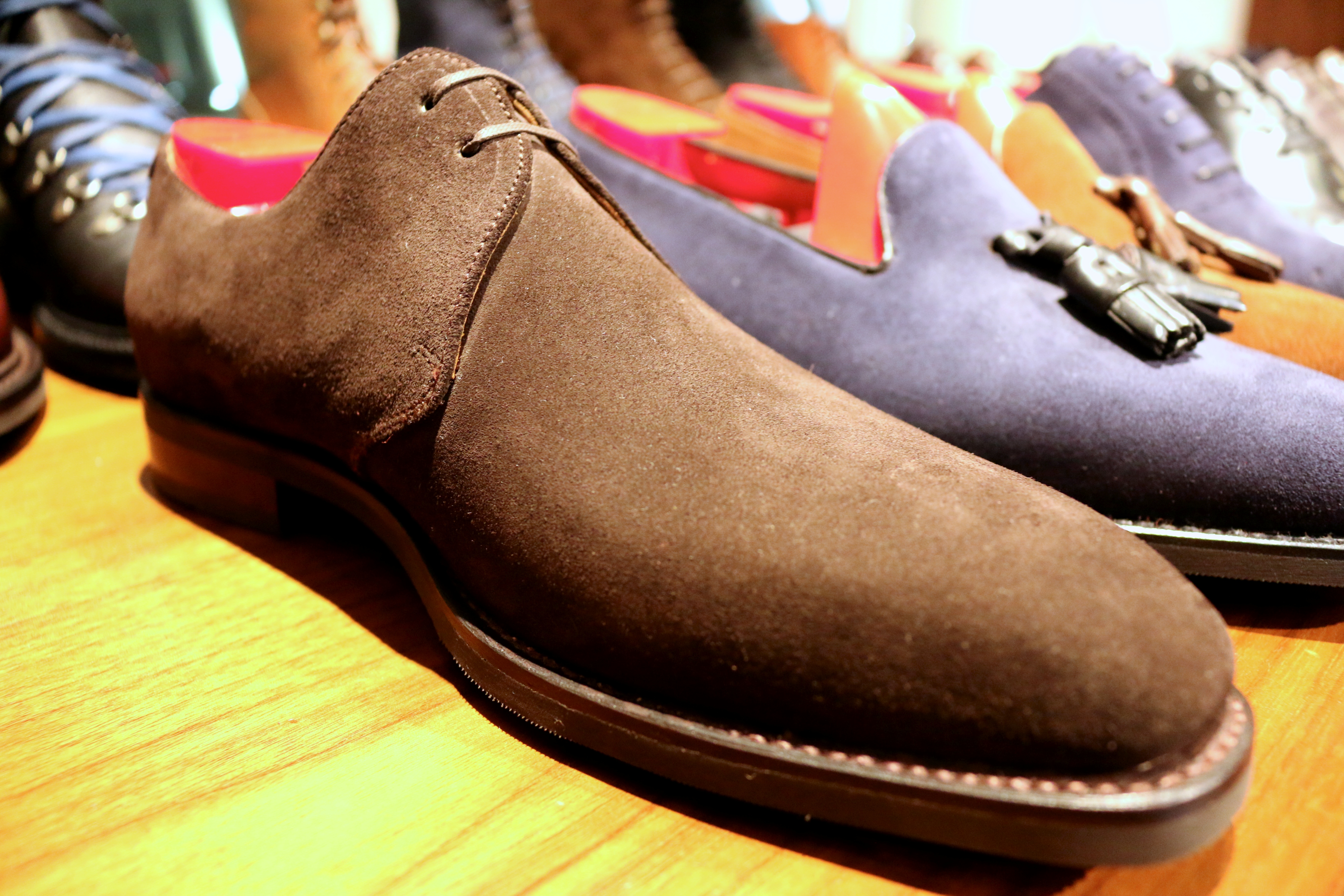 CT: But in the meantime – in your blog, you point out that you want to bring to light any smaller brands, especially younger ones so that they don’t just go unappreciated. Are there any that come to mind right now?
CT: But in the meantime – in your blog, you point out that you want to bring to light any smaller brands, especially younger ones so that they don’t just go unappreciated. Are there any that come to mind right now?
JF: My friend, Christian Kimber. It was funny; he was the first person who ever recognized me as The Shoe Snob.
CT: Like, on the street?
JF: Well, I walked into the shop that he was working in and just pointed it out. We just hit it off, right away. I like to support him because I think he has talent and a lot of different ideas.
There is also one brand, Awl & Sundry, and they have a great idea. Their shoes are actually hand-made in China. They offer almost a complete customization online, which is remarkable. Their website is quite intelligent. I think they need to refine their shoes a bit, but other than that, I think their idea and the execution of it is really good.
There’s also a bespoke shoemaker named Norman Vilalta, who’s trying to create his own ready-to-wear line, but it’s on a very small scale. I support him as well.
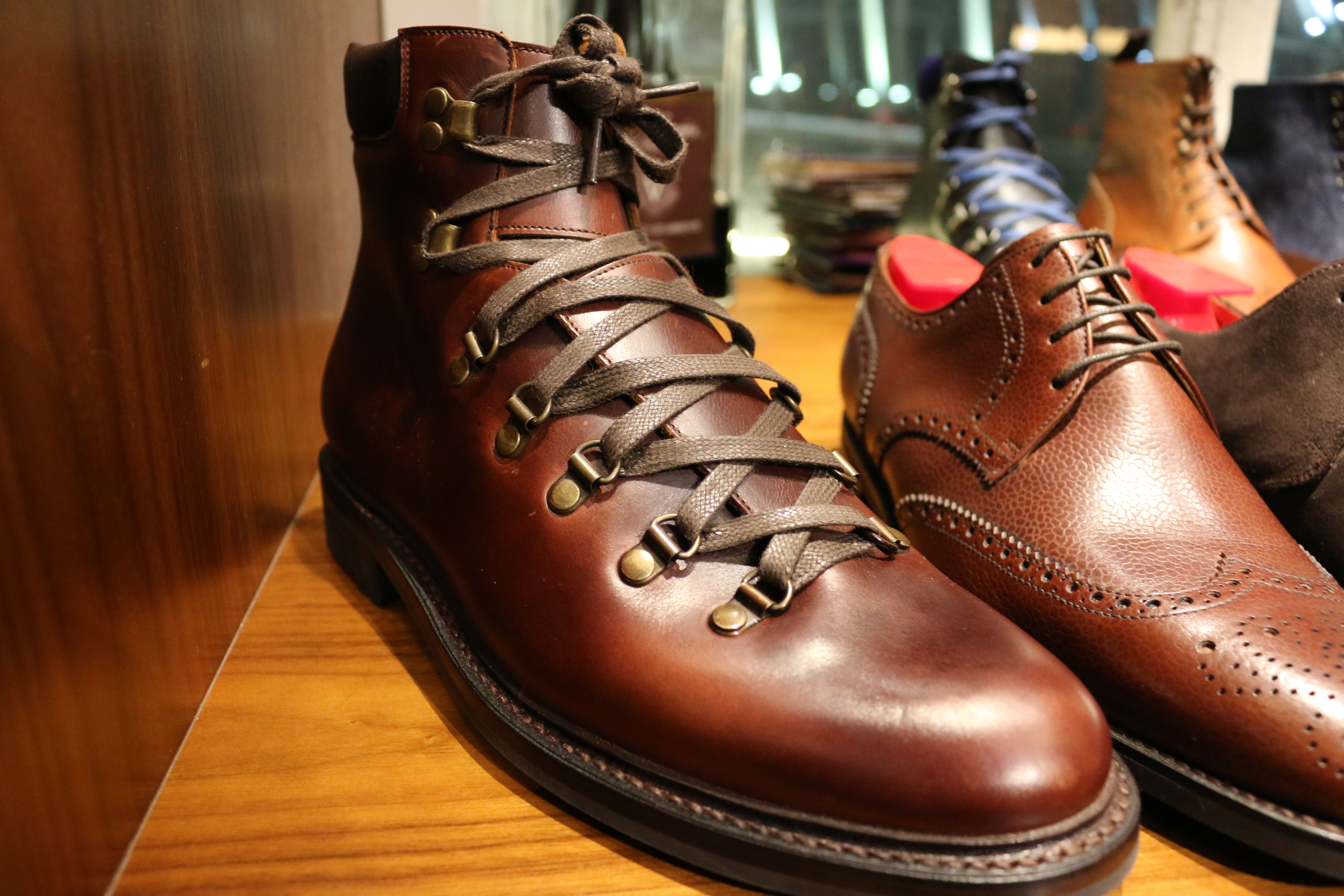 CT: When you were in the U.S. seven years ago, having decided to start this journey, you cashed out your 401K, picked up your bags, flew to Italy. I think I more often hear of stories of people who could have done that, and regret not. There are so many different things they see pulling them back. What, for you, was most important thing someone in the same position needs to hear?
CT: When you were in the U.S. seven years ago, having decided to start this journey, you cashed out your 401K, picked up your bags, flew to Italy. I think I more often hear of stories of people who could have done that, and regret not. There are so many different things they see pulling them back. What, for you, was most important thing someone in the same position needs to hear?
JF: You just have to believe in it. The second you start self-doubting you set yourself up to fail. I believed in my goals, and I didn’t see it any other way. That kept me going, even through tough times. You just have to believe in yourself, and that’s the problem. Most people are afraid to believe in themselves.
People can do anything they want. I didn’t come from anything special. I have no background in shoes; I majored in business. But I was determined, and I had passion. And I didn’t let those falter in any way. I kept these forward, I kept going forward, and I never looked back.
CT: Where does this conviction come from?
JF: A lot of it’s my father. He very much believes in everything he says. There’s a show in England called Only Fools and Horses. There’s this character called Del Boy, and he’s a little hustler. He says “By this time next year we’re gonna be millionaires” to his brother. By the end of the seven-year series, he does.
And that was my dad. I remember we used to live in a one-room motel: him, his wife, my sister — not even a year old — and me. He could barely pay the rent on a one-room motel. And then he became a multimillionaire, all through is determination; he never doubted himself, ever. And I guess that rubbed off on me.
And there’s my mother, who says “I’ll be proud of you no matter what.” I never had to worry about pleasing anybody. I did everything for myself.
So I think with them combined, it gave me the strength to do that.
CT: That’s the funny thing. I’ve found it’s so important what your family has done for you, because it comes into what you do and who you are. When you’re adult, you can really appreciate it. I’m sure that right now, as a father, you do.
JF: Yeah.
CT: What’s your son’s name?
JF: Nereo.
CT: What does that mean?
JF: It means “great swimmer.” Nereo comes from Nereus, who was the son of the earth and the sea in Greek mythology. Nereo is the Italian of the name.
CT: Have you given thought to Nereo one day taking up your mantle?
JF: Not really. I’d love it if he were to become a footballer. That was my first dream. But I don’t want to be the kind of person that pressures his kid to follow the family footsteps unless he’s passionate to do so. I want him to do what he wants to do.
CT: But just like I want my kid to have their first drum set at four years old, I’m sure you’d want Nereo to pick out a fine pair of shoes to take care of?
JF: I don’t know, to be honest. In a couple years I’ll definitely put a football to his foot, though.
______________________________________________________________
Justin FitzPatrick will be in Singapore as a trunk show guest at Kevin Seah Bespoke on November 21 & 22.
He will return to London, where you can visit his collection at the Timothy Everest Bespoke Atelier on 32 Elder St, E1 6BT, London, or contact via info@jfitzpatrickfootwear.com
- Quick list of Justin’s sites, as well as the artisans he mentioned:

